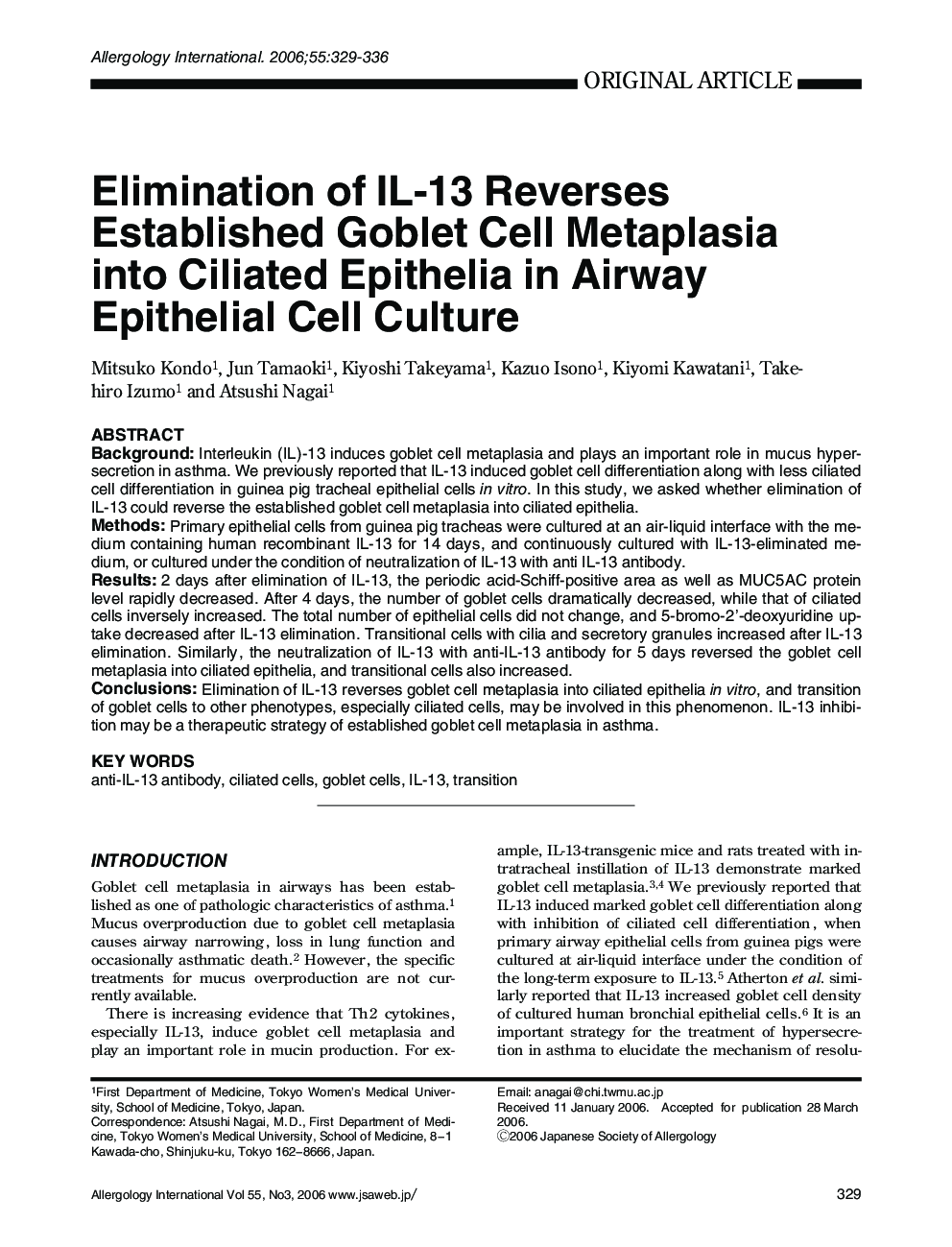| Article ID | Journal | Published Year | Pages | File Type |
|---|---|---|---|---|
| 3341167 | Allergology International | 2006 | 8 Pages |
ABSTRACTBackgroundInterleukin (IL)-13 induces goblet cell metaplasia and plays an important role in mucus hypersecretion in asthma. We previously reported that IL-13 induced goblet cell differentiation along with less ciliated cell differentiation in guinea pig tracheal epithelial cells in vitro. In this study, we asked whether elimination of IL-13 could reverse the established goblet cell metaplasia into ciliated epithelia.MethodsPrimary epithelial cells from guinea pig tracheas were cultured at an air-liquid interface with the medium containing human recombinant IL-13 for 14 days, and continuously cultured with IL-13-eliminated medium, or cultured under the condition of neutralization of IL-13 with anti IL-13 antibody.Results2 days after elimination of IL-13, the periodic acid-Schiff-positive area as well as MUC5AC protein level rapidly decreased. After 4 days, the number of goblet cells dramatically decreased, while that of ciliated cells inversely increased. The total number of epithelial cells did not change, and 5-bromo-2’-deoxyuridine uptake decreased after IL-13 elimination. Transitional cells with cilia and secretory granules increased after IL-13 elimination. Similarly, the neutralization of IL-13 with anti-IL-13 antibody for 5 days reversed the goblet cell metaplasia into ciliated epithelia, and transitional cells also increased.ConclusionsElimination of IL-13 reverses goblet cell metaplasia into ciliated epithelia in vitro, and transition of goblet cells to other phenotypes, especially ciliated cells, may be involved in this phenomenon. IL-13 inhibition may be a therapeutic strategy of established goblet cell metaplasia in asthma.
